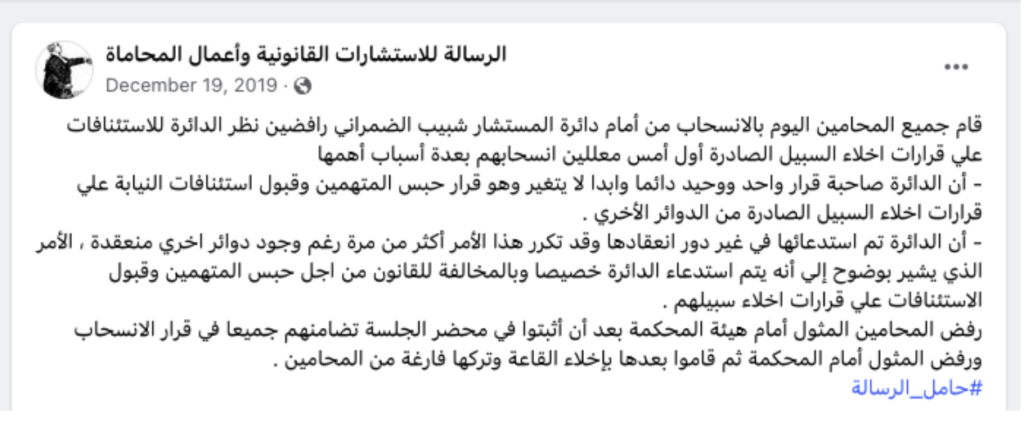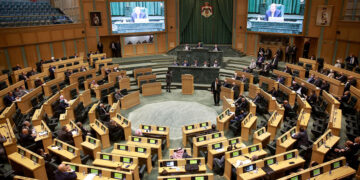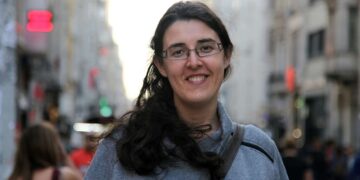Judge Shabeeb al-Damarany currently sits on the Cairo Criminal Court. He served as Judge and Chair of the Third Terrorism Circuit of the Cairo Criminal Court until at least April 2021.
In that role, al-Damarany presided over several cases where prosecutors brought charges against Egyptian citizens for exercising their freedom of speech, freedom of association, and freedom of assembly, all fundamental rights enshrined in the 2013 Egyptian Constitution and protected by international human rights law.
Al-Damarany ignored these rights and routinely upheld the detention of peaceful political protestors, often without the Public Prosecutor presenting evidence to substantiate these charges or giving reasons for the continued detention of protestors. Both actions violate the Egyptian Constitution and the Egyptian Criminal Procedure Code.
The United States should impose Global Magnitsky Sanctions against al-Damarany as his judicial abuse resulted in serious human rights violations, depriving numerous Egyptians of a fair and impartial trial and upholding the arbitrary detention of human rights defenders, university professors, and other Egyptian citizens.
Al-Damarany also issued several controversial sentences upholding the death penalty or life imprisonment where his remarks and judicial reasoning clearly demonstrated an unwarranted political bias that undermined the legitimacy of these sentences and the impartiality of the Egyptian judiciary. These remarks strongly suggest that the defendants did not receive a fair and impartial trial, a requirement of Egyptian law. Article 94 of Egypt's 2013 Constitution provides that "the independence, immunity and impartiality of the judiciary are essential guarantees for the protection of rights and freedoms." In contrast, al-Damarany's comments invoke unfounded conspiracy theories and obvious political bias.
Upholding Arbitrary Detentions through Endless Pretrial Detention and No Evidence
Judge al-Damarany presided over several cases where he upheld the pretrial detention of political detainees even though the prosecution presented no evidence to warrant continued detention. For example, on December 25, 2020, al-Damarany renewed the pretrial detention of Omar el-Shenety even though the prosecution presented no evidence to justify el-Shenety's continued pretrial detention. Similarly, on November 29, 2019, al-Damarany extended Haitham Mohamedain's pretrial detention even though the prosecution presented no evidence.
Article 136 of Egypt's Criminal Procedure Code requires that before issuing a detention order, the investigating judge must hear statements from the public prosecutor and the defense. Further, a detention order must include an explanation of the crime attributed to the defendant, the penalty for the criminal offense, and the reasons for issuing the order. Judge al-Damarany gave no reason for his decision to extend the pretrial detention of el-Shenety or Mohamedain.
Lacking any substantive reasoning or evidentiary support, al-Damarany's decisions violate Egyptian law and amount to arbitrary detentions. In both instances, Judge al-Damarany deprived the defendants of their due process rights and disregarded Egyptian law.
These two cases are representative of a much broader pattern of abuse by Judge al-Damarany, as in 2020, when he reviewed 85 cases, issued 316 pretrial detention decisions, but issued only six release decisions. An Egyptian lawyer also said that al-Damarany renewed the pretrial detention of several political activists and uncritically accepted the prosecution's appeal for continued detention rather than consider releasing these individuals, as required by law.
Judge al-Damarany's uncritical deference to prosecutors, even when they present no evidence, and his disregard of the statutory requirements for upholding or renewing pretrial detention became so notorious that in December 2019, Egyptian lawyers decided to withdraw from the court and stop attending sessions when al-Damarany presided.
These same lawyers said the Third Terrorism Circuit, which al-Damarany led, convened when the court was not in session, and at the New Cairo Court, instead of the Institute of Police where it was supposed to hold its sessions. By convening the court outside of its normal hours and by holding sessions at different locations, Judge al-Damarany did not allow defendants to have a meaningful defense.

Showing Clear Bias in Sentencing Defendants to Death and Life Imprisonment
Al-Damarany chaired several high-profile trials and issued controversial verdicts that did not adhere to due process standards and showed a clear bias. On February 22, 2018, al-Damarany sentenced 21 defendants to death in the Damietta "Terrorist Cell" case. Al-Damarany issued the verdict after he gave a long speech that included many political statements and showed a clear bias towards the government. In that speech, al-Damarany stated, "Egypt will not kneel before the forces of terrorism and extremism" and "the sacrifices made by the armed forces and the police in the war against terrorism are a holy jihad that all Egyptians stand behind."
On April 7, 2019, the Court of Cassation decided to commute the death penalty against five defendants to lesser sentences, such as 15 years in prison, and to acquit three others.
Al-Damarany also presided over the Al-Fath Mosque trial, which began in August 2013. This grossly unfair mass trial of 494 defendants saw the Egyptian government present almost no credible evidence and barred defendants from participating in the case against them or even hearing the proceedings. On September 18, 2017, al-Damarany sentenced 43 defendants to life sentences, including 22 defendants in attendance and 21 defendants in absentia.
Al-Damarany also issued verdicts for prison sentences ranging from five to fifteen years against 399 other people who appeared before the court. Before announcing these sentences, al-Damarany gave a speech where he said that the Egyptian people suffered from a conspiracy orchestrated by the Muslim Brotherhood to dismantle the Egyptian state. According to al-Damarany, the Egyptian people, with the help of the Egyptian army and police, refused this conspiracy, which led to the glorious revolution of June 30.
Al-Damarany also made politically charged remarks indicating his bias and partiality, particularly regarding the events surrounding the government's massacre of over 1,150 protesters in Rab'a Square in 2013, stating, "the Muslim Brotherhood came out with their ugly face filled with anger and the bitterness of defeat, so they planned and arranged the armed Rab'a sit-in."
The Cassation Court is still reviewing appeals submitted by at least 38 defendants in that case.
Al-Damarany was born in the Balina district, Sohag Governorate, in southern Egypt.
Tell al-Damarany to stop upholding the arbitrary detention of peaceful protestors without evidence and ignoring the due process rights of peaceful activists. Write to him at the Egyptian Judges Club on Facebook or the Egyptian Ministry of Justice on Twitter.
About DAWN's culprit gallery:
Tyrants need enablers who will implement their oppressive practices, even if it means abusing their fellow citizens. These agents often mask their complicity in the guise of professionals exercising their duties in offices, courtrooms, police stations, and interrogation rooms.
DAWN seeks to disclose the identity of the state agents who enable repression and to make them recognizable at home and abroad. These individuals, whom DAWN calls "culprits," bear administrative, civil, moral, legal, or political responsibility for human rights abuses or international humanitarian law violations.







































